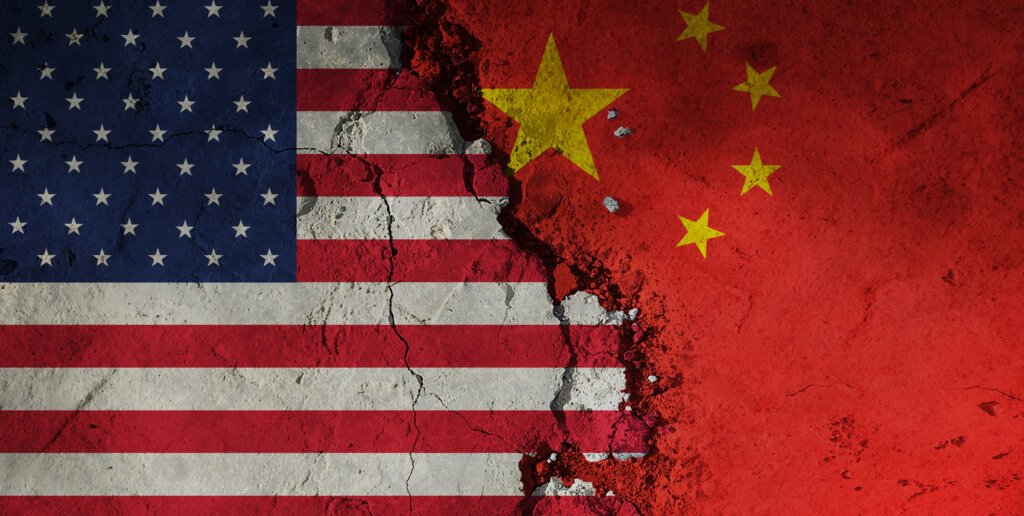- Trump administration is reportedly drafting AI chip export restrictions targeting Malaysia and Thailand over suspected China smuggling routes
- The move could impact billions in regional data centre investments while rescinding Biden-era global AI diffusion curbs
The Trump administration is apparently preparing new AI chip export restrictions targeting Malaysia and Thailand over concerns about semiconductor smuggling to China, according to Bloomberg’s sources familiar with the matter. The proposed measures would add the two Southeast Asian nations to existing export control frameworks amid ongoing investigations into potential chip diversion schemes.
A draft rule from the Commerce Department seeks to prevent China — to which the US has effectively banned sales of Nvidia’s advanced AI processors — from obtaining those components through intermediaries in the two Southeast Asian nations, people familiar with the matter told Bloomberg.
If proven true, the proposed AI chip export restrictions would mark the first formal step in Trump’s promised overhaul of his predecessor’s semiconductor trade policies. The timing of these potential restrictions comes as Malaysia has emerged as a critical hub for global technology investments.
The timing of these potential restrictions comes as Malaysia has emerged as a critical hub for global technology investments. Oracle, Google, Microsoft, and Amazon have committed a combined investment of $16.9 billion through 2038 in the country’s digital infrastructure, with Oracle alone pledging $6.5 billion for its first public cloud region in the country.
Trade data also shows that chip shipments to Malaysia have surged in recent months, according to Trendforce’s report. This increase has drawn the attention of US officials who worry about the potential diversion of advanced semiconductors to China.
What ignited the concerns?
The proposed restrictions gain additional context from ongoing investigations in neighbouring Singapore. Singapore charged three men with fraud in a case domestic media have linked to the movement of Nvidia’s advanced chips from the city-state to Chinese artificial intelligence firm DeepSeek.
The servers involved in the case were supplied by Dell Technologies and Super Micro Computer to Singapore-based companies before they were sent to Malaysia, according to Singapore’s Law and Home Affairs Minister K Shanmugam. Malaysia said it will take “necessary action” against Malaysian companies if they are found to be involved in a fraud case linked to the alleged movement of Nvidia chips.
It is also worth noting that the draft measure represents a significant departure from the Biden administration’s approach. Officials plan to pair Malaysia and Thailand controls with a formal rescission of global curbs from the so-called AI diffusion rule, which had drawn objections from US allies and tech companies, including Nvidia.
Commerce Secretary Howard Lutnick has outlined the administration’s vision, stating that the US will “allow our allies to buy AI chips, provided they’re run by an approved American data centre operator, and the cloud that touches that data centre is an approved American operator”.
However, the draft measure is far from a comprehensive replacement and doesn’t answer questions about security conditions for the use of US chips in overseas data centres — a debate with particularly high stakes for the Middle East.
Mitigation Measures for Industry
Recognizing the potential disruption to legitimate business operations, the proposed AI chip export restrictions would include several measures to ease pressure on companies with significant operations in the region.
One provision would allow firms headquartered in the US and a few dozen friendly nations to continue shipping AI chips to both countries, without seeking a licence, for a few months after the rule is published.
The licence requirements also would still include certain exemptions to prevent supply chain disruptions. Many semiconductor companies rely on Southeast Asian facilities for crucial manufacturing steps like packaging, and the process of encasing chips for use in devices.
Regional response and uncertainty
Government responses from the targeted nations have been measured. In response to earlier Bloomberg queries about curbs focused on smuggling risks, Thailand said it’s awaiting details, while Malaysia’s Ministry of Investment, trade and industry said clear and consistent policies are essential for the tech sector.
Nvidia, the dominant maker of AI chips, declined to comment, while spokespeople for the Thai and Malaysian governments didn’t respond to Bloomberg’s requests for comment. Nvidia chief executive officer Jensen Huang has previously said there’s “no evidence” of AI chip diversion, in general remarks that didn’t touch on any particular country.
Strategic implications for Southeast Asia
The proposed measures highlight the broader geopolitical tensions surrounding AI technology and export controls. Washington officials for years have debated which countries should be able to import American AI chips — and under what conditions.
On one hand, the world wants Nvidia hardware, and US policymakers want the world to build AI systems using American technology — before China can offer a compelling alternative.
Singapore is Nvidia’s second-biggest market after the United States, accounting for 18% of its total revenue in its latest fiscal year. Actual shipments to the Asian trading hub, however, contributed less than 2% of total revenue, as customers use it as a centre for invoicing sales to other countries.
What’s next?
The draft regulation remains subject to change, and it’s unclear whether Trump officials may ultimately regulate AI chip export restrictions to a wider swath of countries, beyond the Malaysia and Thailand additions. The Commerce Department did not respond to Bloomberg’s request for comment on the proposed measures.
The proposed restrictions underscore a fundamental tension in US technology policy: how to contain China’s AI capabilities without undermining America’s technological influence. By potentially restricting two countries that have become key destinations for US tech investment, Washington risks creating the very fragmentation it seeks to avoid – pushing regional partners toward alternative suppliers and technologies.
For Malaysia and Thailand, the challenge extends beyond compliance. These nations must now prove they can serve as trusted AI infrastructure hubs while managing the reality that their strategic location makes them attractive conduits for circumventing sanctions.
The outcome will likely shape how other Southeast Asian countries approach their own AI development strategies.







